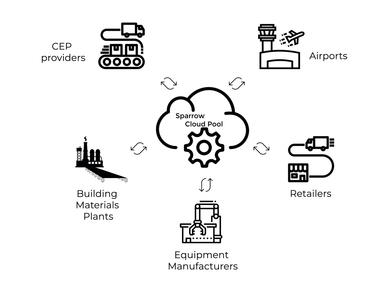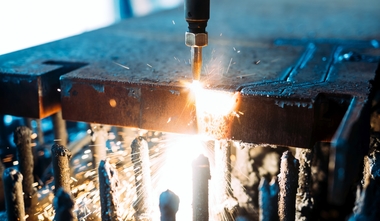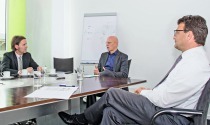Innovative services are in demand
The current Roland Berger study shows that 65 % of the profits made in the mechanical engineering industry originate from the service sector. While business with traditional services, such as the supply of spare parts and maintenance work, is declining, business with innovative service products, such as tools for analysis and capacity enhancement, as well as consultative services, offer great potential. Remote diagnosis services are also experiencing an upward trend. The Roland Berger experts identified four business models that can be applied in order to successfully expand a company’s range of services.
In Germany, Austria and Switzerland, service business has always played an important role in the plant and machine manufacturing industry. These days, up to 65 % of the profits originate from business with various services. However, the revenue and profits achieved with classical services, such as spare parts and machine maintenance are showing a progressive decline. In order to counteract this trend, manufacturers of machines and plants should reconsider their business models and develop new services. Those are the findings of the new service business study titled “Evolution of service”, which is based on answers obtained by the Roland Berger Strategy Consultants from 30 companies in Germany, Austria and Switzerland.
It established that companies whose service business accounts for at least one third of total revenue are consequently able to achieve EBIT margins of more than 10 %. “The problem is that around 40 % of the companies have not yet reached the necessary percentage share of revenue in their service sector”, says Ralph Lässig, a partner in Roland Berger Strategy Consultants. “Many companies are therefore missing out on important profit potential - both in industrialized countries and in the emerging economies.”
On average, business with spare parts and maintenance work still accounts for 42 % of the revenue generated by services in the mechanical engineering industry. However, the margins achieved with these traditional services are declining, due to today’s high degree of standardization. It is often cheaper to purchase spare parts from third party suppliers. “In the future, machine and plant manufacturers should focus on new services”, advises Roland Berger partner Philipp Angehrn. “These primarily comprise services for enhancing the performance of already installed machines, as well as consultation services.”
The industry can utilize a great deal of business potential in, for instance, upgrades and updates of existing plant software, as well as in evaluation and analysis tools. Also of increasing importance is consultation aimed at assisting customers to identify suitable machines with the right technical performance and the necessary size for their requirements. However, in spite of the growth potential offered by service business, plant and machine suppliers are still lagging far behind in this respect. In fact, only 55 % of the mechanical engineering companies that participated in the study are actually in a position to sell services for installed plants.
“Remote monitoring”, the wireless transmission of data from an installed plant to the manufacturer, has become an important growth driver for the machine construction industry. “This technology, which enables remote diagnosis in the case of fault messages, is not only a means of quick problem solving”, says Lässig. “By intelligent evaluation of the data from the customer’s plant, mechanical engineering firms are able to optimize their plants, and do so precisely in accordance with the needs of their customers.” In this way, 80 % of all plant manufacturers today obtain important information about the use of installed machines. However, only a few are actually in a position to analyze these data in order to offer their customers real added value.
In view of these new trends on the international market, the Roland Berger experts have identified four different business models for the service sectors of mechanical engineering companies.
The service business of technology leaders would also profit from the unique selling points of their niche products, patented components and proprietary access to customers. However, the offered service has to ensure technological leadership over the entire product lifecycle.
By contrast, price leaders are exposed to fierce competition, because their products are less customer-specific and because they neither sell patented components nor have proprietary access to customers. Their customers’ decisions are essentially price-driven and the offered services have to reflect this.
So-called application leaders are characterized by specific process know-how with a strong focus on the construction of prototypes, and on the provision of individually customized machines. In their service divisions, they particularly need experts with profound application know-how and customer familiarity, who regularly upgrade the machines.
So-called efficiency leaders, similar to the price leaders, do not manufacture any patented components and are therefore exposed to tough competition. Their service revenue is mainly generated by the sale of service assignment hours. In order to guarantee global service coverage, an efficient service network is needed, and a certain necessary critical mass has to be achieved.
“Machine and plant engineering companies that are able to identify the right service model for their firm, and to develop the appropriate business strategy will be in a position to exploit hitherto untapped profit potential”, Berger partner Angehrn sums up. “Smaller companies should consider entering into strategic alliances in order to save costs and resources.”
You can order this study under:
www.rolandberger.com




